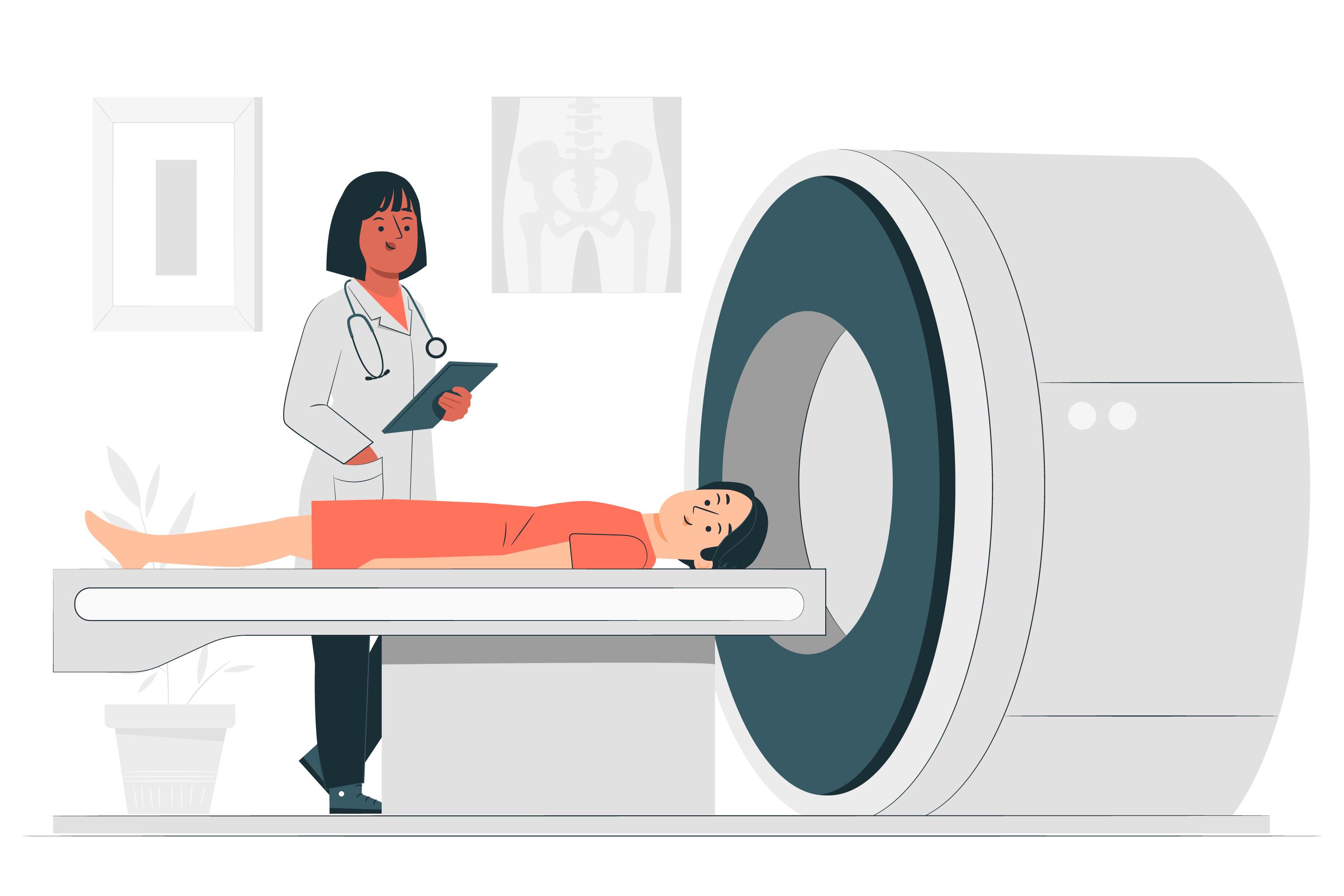CT Scan
Empowering Diagnosis
With CT Scan
Computed Tomography (CT) scan,
also known as Computed Axial Tomography (CAT), is a medical imaging technique
that utilises X-ray technology to create a detailed cross-sectional images of
the body. CT scan offers comprehensive and accurate insights into the internal
structures, organs, and tissues, that enable healthcare professionals to
screen, monitor, and diagnose various medical conditions to administer accurate
and timely treatment for better patient care. Advancements in CT technology
continually improve and enhance image quality, reduce the need for higher
radiation dosage, and improve patient care and comfort.
Overview of the Key Aspects of CT Scan
Types of CT Scanners
There are various types of CT
scanners available in the field depending on the types of screening and
diagnosis needed; including conventional CT, spiral CT, and multidetector CT.
These scanners allow for continuous scanning, improved imaging quality, faster
scans, and higher resolution images ensuring a better patient outcome.
Procedure:
●
During a CT scan, patient is made to lie on a table
equipped with motors that can slide into the circular opening of the CT
scanning machine.
●
It is imperative for patients to remain still during
the scanning procedure to avoid blurry images and improper imaging.
●
Patients may be asked to remove metal objects,
accessories, or anything that may cause an hindrance during the scanning
process.
●
The machine deploys a series of X-rays around the body
of the patient to capture images from different angles.
●
It is a relatively painless and quick process.
●
The acquired images are then reconstructed into
detailed images through specialised software to identify and assess any
abnormalities or complications.
●
The procedure takes 15 minutes to one hour depending on
the indication.
●
In cases where detailed scanning is required, a
contrast dye may be administered through an intravenous line.
Benefits of CT Scan
●
Painless and relatively quick
●
Generates more detailed imaging as compared to X-rays
●
Effectively screens and monitors conditions related to
head, neck, shoulders, spine, and abdomen, among others
●
Can be used to diagnose infections, muscle disorders,
tumors, internal injuries, and cardiovascular diseases
●
Often used to guide procedures, surgeries, biopsies,
and targeted treatment methods
It is important for the patients
to inform their healthcare providers if they have any medical conditions or
pregnancy related concerns to avoid aggravation of complication through the use
of ionizing radiation or dyes. In addition, patients should refrain from
wearing any accessories or metal products during the scan to avoid any risks
during the procedure. If patients have any allergies, they should inform the
healthcare providers to avoid allergic reactions and complications to the
contrast dyes so that the radiologist can scan without the contrast. If
contrast dyes are used, the patient is advised to drink a lot of water to
remove the dye from the body.
CT Scan
- Coronary Angio
- Brain with Angio
- Chest + Abdomen + Pelvis
- Brain + Spect + Perfusion
CT Scan
- HRCT Chest
- Temporal Bone
- PNS Full
- Brain with contrast

